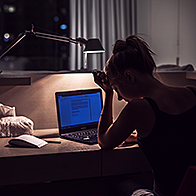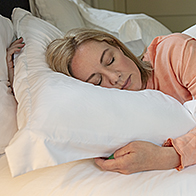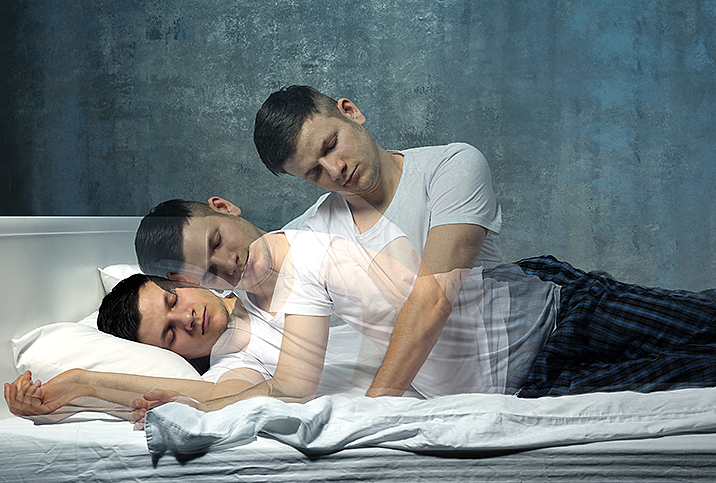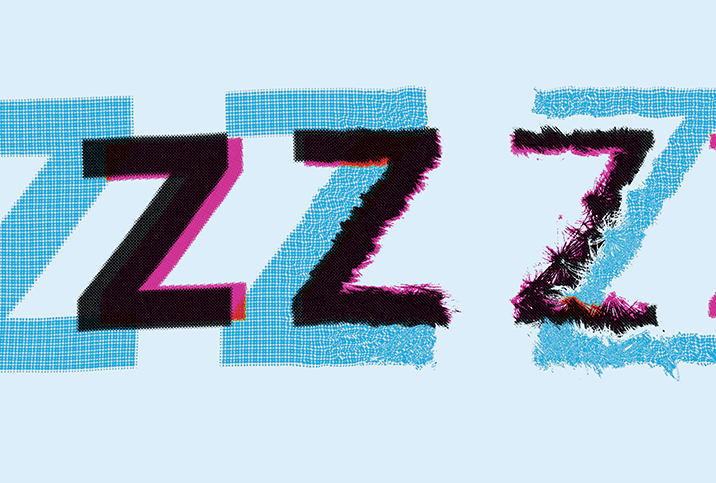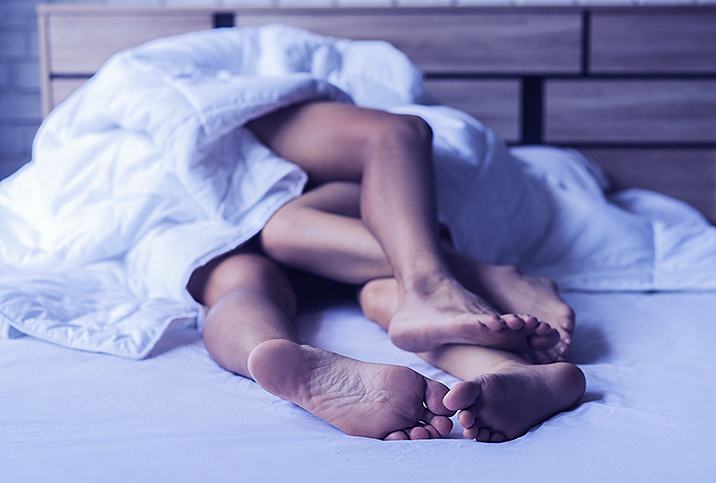Don't Be Fazed by Biphasic Sleep

When you imagine the brutal existence of living in 18th-century Colonial times, you probably don't picture them getting up every night at around midnight to hang out for an hour or two.
It's not all well-known, but there's ample historical evidence for this behavior. Authors such as Charles Dickens, John Locke and Robert Louis Stevenson all reference "first sleep" or "dead sleep," followed by "second sleep" or "morning sleep."
People habitually arose to write, read and think about their dreams, or possibly have sex. Less titillating activities might include praying, sewing or chopping wood under the moonlight, or even walking to a neighbor's house for a beer and a chat before heading home to sleep until morning.
We call it segmented sleep or biphasic sleep today. You could fill a mattress with recent articles on alternative sleep schedules like these, the benefits of which are invariably extolled by alpha-male CEO types who claim to work 100 hours a week and sleep four hours a night.
This is a nation that's famously under-rested—the Centers for Disease Control and Prevention (CDC) says 35 percent of American adults are chronically on short sleep of fewer than seven hours.
Which leads to the question: Is there truly a healthy alternative to a full night's sleep?
Why do we sleep, anyway?
Sleep may seem like the most natural thing in the world. We spend a third of our lives doing it, after all. But sometimes it can feel like more trouble than it's worth.
"People are very anxious about their sleep," said Ellen Stothard, research and development director at the Colorado Sleep Institute. "Like, 'I'm doing it wrong.' And it's very hard because sleep is such a passive thing. It's not like exercise, where you can push yourself harder, or add more weight or do more reps."
A little worry about sleep quality is understandable. To be healthy and happy, you need seven to nine hours per night, according to the CDC. Any less can lead to serious health consequences.
"Sleep is important for a lot of physiologic functions that would not otherwise be possible," said Alon Avidan, M.D., a neurologist and director of the UCLA Sleep Disorders Center. "If you are not able to get sufficient sleep, then the ability to repair and regenerate and rejuvenate the body's cells is going to be impaired."
What happens to you without enough sleep?
Anyone who has stayed up all night to study for an exam knows sleep deprivation messes with your head. However, it goes beyond mere brain fog: Sleep disorders have been linked to depression, anxiety, bipolar disorder, schizophrenia, ADHD and more. According to Harvard Medical School, about 50 percent to 80 percent of people in psychiatric treatment have chronic sleep issues, compared with 10 percent to 18 percent among the general population.
A lack of sleep makes you cranky and a little short-tempered, and can cause damage to the parts of your brain that help you process emotions.
"The ability to regulate negativity and particularly negative emotions is reliant on the frontal lobe in the brain," Avidan said. "When people are sleep-deprived, they lose the ability to regulate how they respond to conflict and how they express anger."
'If you are not able to get sufficient sleep, then the ability to repair and regenerate and rejuvenate the body's cells is going to be impaired.'
Chronic lack of sleep can also cause physical problems. One study published in the journal Science Advances found that sleep deprivation actually changes your body metabolism, prompting your system to produce more fat and block muscle-building.
Sleep can also be a critical health factor for contagious diseases, including the current pandemic. As Avidan noted, numerous trials have shown the efficacy of the flu vaccine declines for people who don't get enough sleep, illustrating in stark terms how sleep affects the immune system.
"We assume that the same applies to the COVID-19 vaccine, that not getting enough sleep may potentially mean it's not as effective," Avidan said. "I'm not saying it's definitely been proven, but we find that more people who are sleep-deprived run into other autoimmune [problems]."
Enter biphasic sleep
Okay, fine. To be healthy, you need about eight hours of sleep. That means I can get my eight hours any way I want, right? Say, in separate chunks like those long-ago people Dickens wrote about? Or maybe even breaking it up into a series of catnaps like Nikola Tesla and Da Vinci are rumored to have done?
Sorry, Leonardo. It turns out the total length of time needed to sleep is just one factor. Getting your sleep more or less all in one go is also crucial—what sleep researchers call "consolidated sleep."
If you want to avoid serious health issues, it's time to put the notion of segmented sleep to bed.
"If you don't get your consolidated sleep, you cannot get all the appropriate proportions of the sleep stages that you need," Stothard said.
Although Stothard was quick to qualify, "I'm a big fan of naps!" going on to explain that healthy sleep can only occur in a series of interlocking and interdependent segments that take place over a seven- to nine-hour night.
"There's a very intricate balance of these cycles, and the distribution of stages within each cycle, and then the distribution of cycles across the night," she said. "And they're all dependent on each other. You can imagine it like a funnel: You can't go straight from the top to the bottom—you have to slide down the sides."
So get some damn sleep, already
The bottom line, then—with apologies to all you wanna-be strongman CEOs out there—is you really can't be healthy if you push yourself to function on three or four hours of sleep. Not even if you add a second, artisanal sleep like the people Dickens wrote about or take frequent naps in the boardroom.
To be sure, as Stothard pointed out, waking up in the night is normal. But if you want to avoid serious health issues, it's time to put the notion of segmented sleep to bed.







